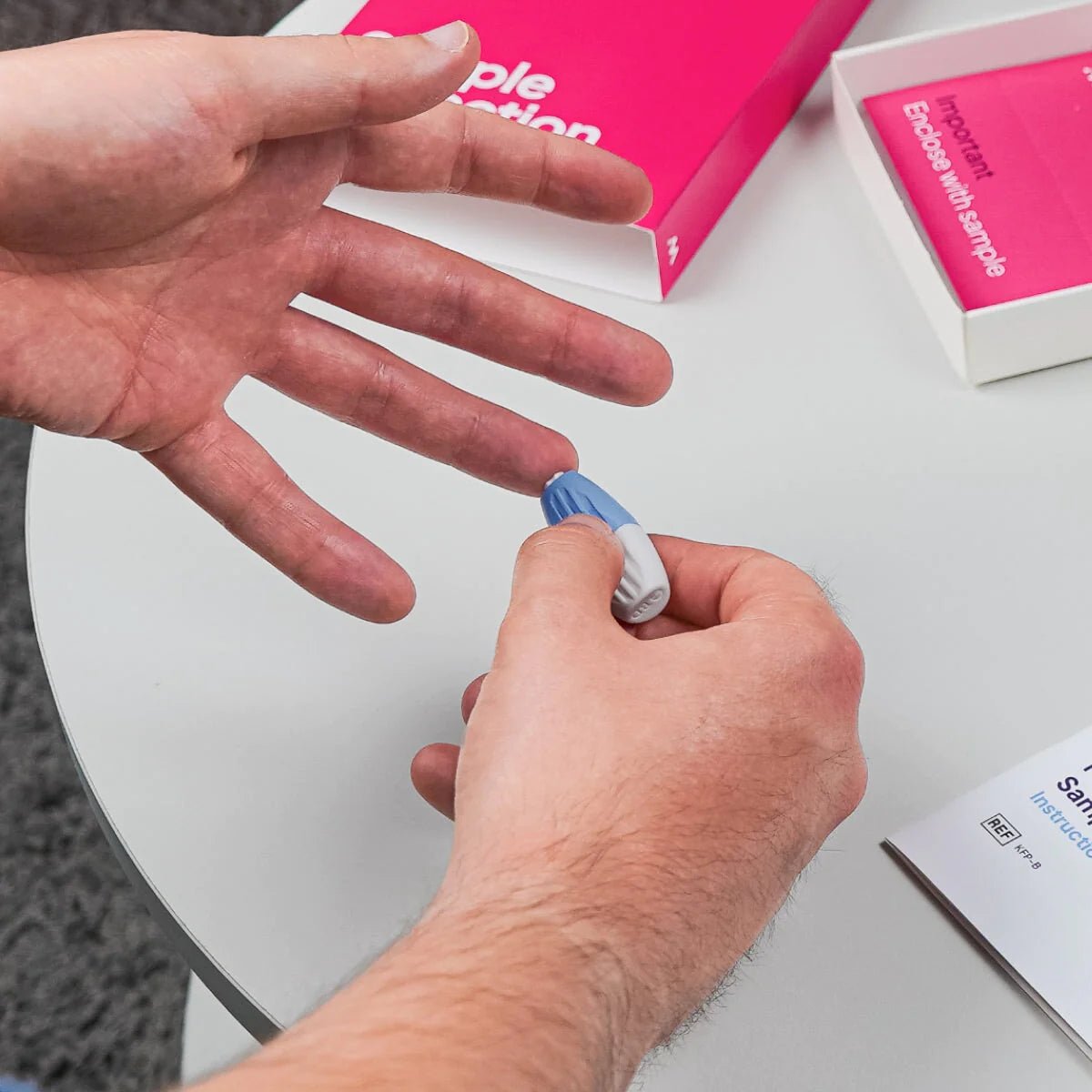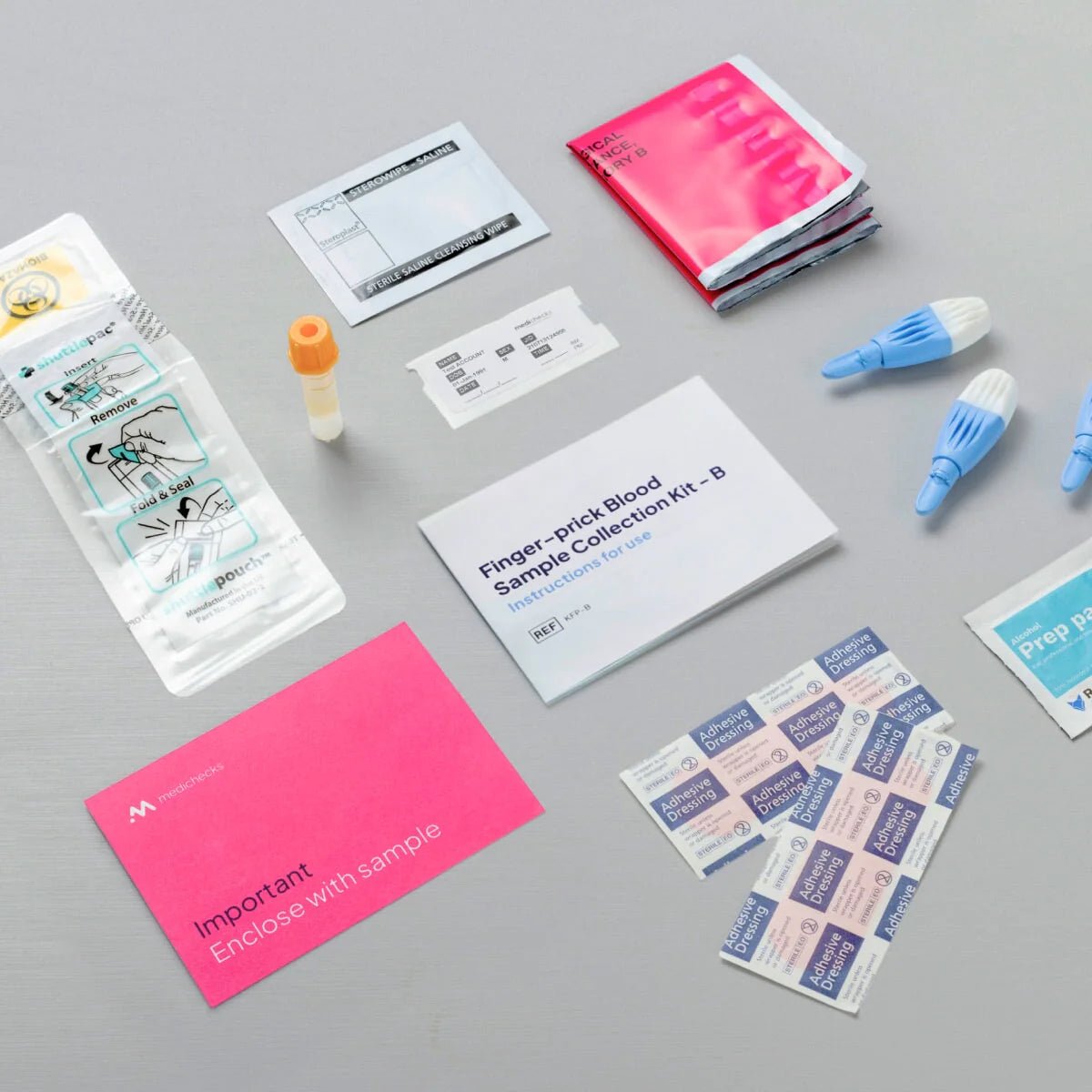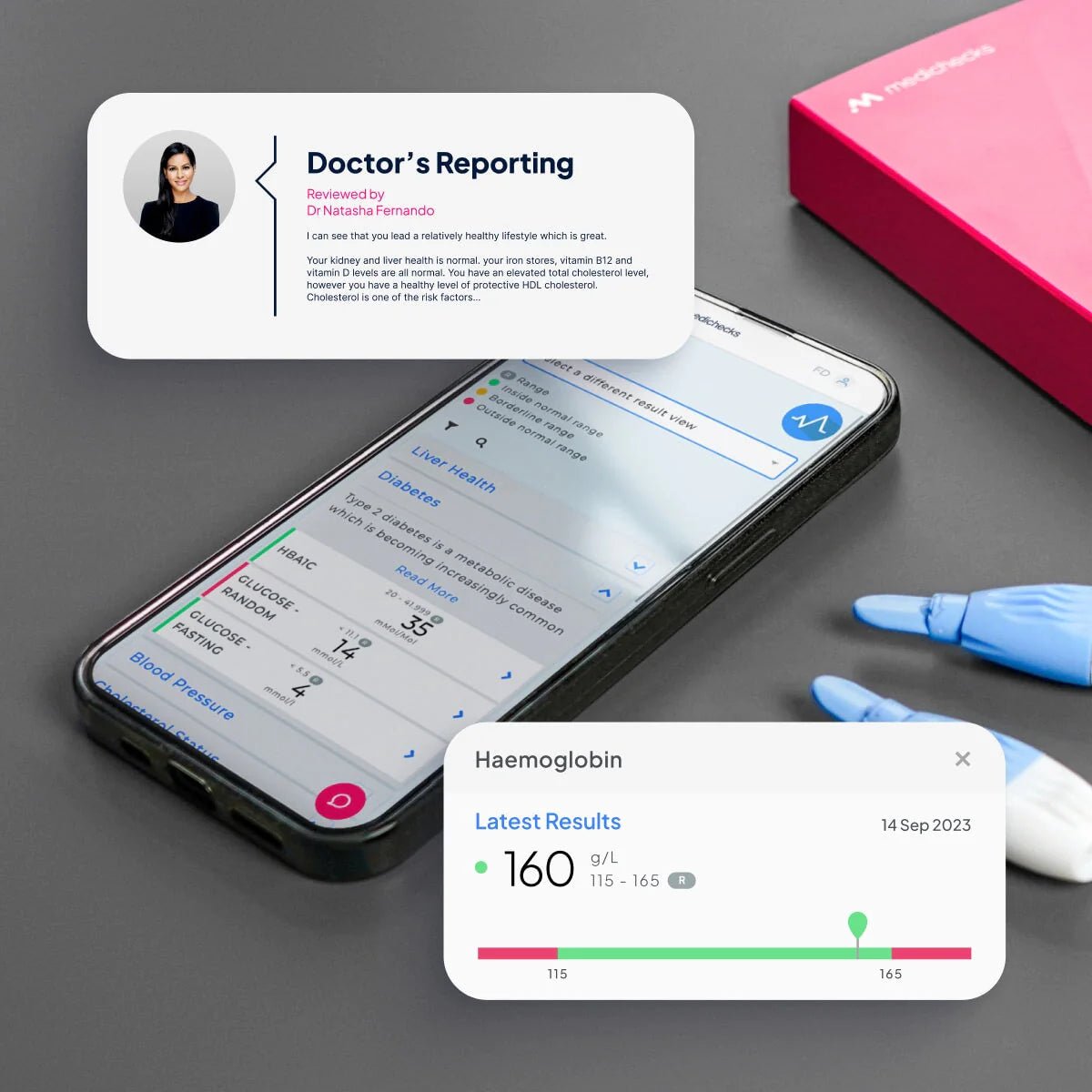Check whether your vitamin D level is within the normal range with this simple, at-home test. Vitamin D is crucial for healthy bones and teeth, as well as a healthy immune system, muscle health, and regulating mood. This test lets you explore whether symptoms, such as fatigue, muscle aches and pains, and frequent colds, could be due to low vitamin D levels. Many UK adults have a vitamin D deficiency. This test can reveal a deficiency, even if you have no symptoms.
Is it for me?
Do you often feel tired and rundown, lack energy, or have muscle aches and pains? Perhaps you spend little time outdoors, have dark skin (which makes it harder for you to make vitamin D from sunlight), or are over 65 — all of which can make you more prone to vitamin D deficiency.
Our vitamin D test can check if you have a low vitamin D level, which could be contributing to symptoms like fatigue and frequent colds.
Vitamin D (25 OH) Blood Test, from our experts to you.
What is vitamin D?
Vitamin D is a fat-soluble vitamin. It’s also known as the sunshine vitamin because we produce most of what we need through exposure to the sun.
Before your body can use vitamin D produced by sun exposure (known as vitamin D3), it must be converted it into another form called 25 hydroxycholecalciferol (25 OH). Vitamin D (25 OH) is the major circulating form of vitamin D, and so your vitamin D (25 OH) level is considered the most accurate indicator of vitamin D supply to your body.
You also get some vitamin D from food, but it’s difficult to get all your requirement from food alone. Sources of vitamin D include oily fish, mushrooms, egg yolks, and vitamin D-fortified foods.
What does vitamin D do?
Vitamin D controls how your body absorbs calcium and phosphate. It’s vital for keeping your bones, teeth, and muscles healthy, and plays a role in immune function and mental health. Vitamin D is particularly important for pregnant women, breastfed babies, and children under five.
What are the symptoms of vitamin D deficiency?
Symptoms of vitamin D deficiency can be vague. They include feeling low in energy, having more aches and pains than usual, depression (especially in winter), and frequent illnesses. Even if you don't have symptoms, it’s worth testing your vitamin D level, as a high proportion of adults in the UK are deficient or have insufficient levels.
If your results are outside the normal range, we'll let you know what steps you can take to improve your vitamin D level. For more information, have a look at our guide to vitamin D deficiency.
What's Included?
Vitamins
Vitamin D
Despite its name, vitamin D is actually a hormone that’s produced by your skin when it’s exposed to sunshine. Before your body can use vitamin D produced by sun exposure (known as vitamin D3), it must be converted into another form called 25 hydroxycholecalciferol (25 OH). Vitamin D (25 OH) is the major circulating form of vitamin D, and so your vitamin D (25 OH) level is considered the most accurate indicator of vitamin D supply to your body.
Vitamin D is essential for healthy bones and teeth, as it helps your body absorb calcium. It also plays a role in muscle health, immune function, and mental health.
Low vitamin D symptoms include muscle weakness, mood swings, and fatigue. Many people in the UK have low vitamin D levels, and people with dark skin and people who don’t spend much time outdoors are particularly at risk.
Small amounts of vitamin D can be obtained from food, especially oily fish, eggs, and vitamin-D fortified foods. But if you have a vitamin D deficiency, you’re unlikely to be able to improve your levels by food alone.
How to prepare for your test
Prepare for your Vitamin D (25 OH) Blood Test by following these instructions. You should take this test before you take any medication or vitamin/mineral supplements. Do not take biotin supplements for two days before this test; discuss this with your doctor if it’s prescribed.
FAQ
How Much Vitamin D Do I Need?
To avoid a vitamin D deficiency, the Department of Health and Social Care recommends that adults and children over four should get 10 micrograms of vitamin D a day.
What Is The Normal Range For Vitamin D?
The normal range for vitamin D levels in the blood varies between laboratories. But, generally, a level below 50nmol/L is considered insufficient. The following table, based on figures from NICE guidance and other sources, is given as a guide. There is currently no agreement on an ‘optimal’ vitamin D level, which may be as high as 70-80 nmol/L.
| Vitamin D level (nmol/L) | |
| <25 | Deficient |
| 25–50 | Insufficient |
| >50 | Adequate |
| >125 | Too high |
What Causes Vitamin D Deficiency?
Vitamin D deficiency has many causes. You may be more prone to a vitamin D deficiency if you're over 65 or have dark skin, which makes it harder to produce vitamin D through sunlight exposure. Certain medical conditions can affect your body’s ability to absorb vitamin D from your food, such as coeliac and Crohn’s disease. Lifestyle factors including your diet and how long you spend outdoors can also play a part. You can read more about vitamin D deficiency in our Vitamin D Guide.
How Can I Test My Vitamin D Level?
The Vitamin D (25 OH) Blood Test is the most accurate way to measure your vitamin D level. You can test your vitamin D level at home with our easy finger-prick blood test kit. Or, you can have your blood sample taken at one of our convenient nationwide partner clinics at a time to suit you.
How Can I Check My Vitamin D Level At Home?
You can check your vitamin D level at home with our easy finger-prick blood test kit. We’ll send you everything you need, including a pre-paid return envelope. Our at-home vitamin D test includes a full lab analysis of your blood sample. You can access your results on your MyMedichecks dashboard, alongside doctor’s advice to help you take action to improve your health and wellbeing.
How does the weather affect vitamin D levels?
We make most of the vitamin D we need with the help of sunlight. So, it’s not surprising that levels can be affected by the changing seasons. Your risk of a deficiency is greater during autumn and winter, when it’s harder to get adequate amounts of vitamin D from time spent outdoors. And as some areas of the UK are sunnier than others, where you live can also affect your vitamin D level. Read more about how the British weather can affect your vitamin D levels.
BE MORE JELLYFISH
The science of Longevity is growing at breakneck speed and tens of BILLIONS of dollars are being invested in solutions to help us all slow aging. But until 'Longevity Escape Velocity' has been achieved, we should all be more like Turritopsis Dohrnii jellyfish - which do not age - and we should invest in our long-term health with a healthy lifestyle, supported by longevity supplements.
WorldWide
Guarantee
Payment
Policy








